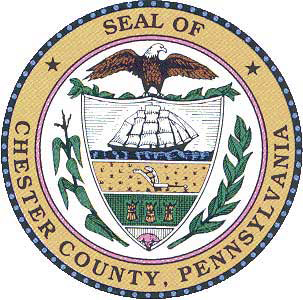 WEST CHESTER – As the COVID-19 crisis unfolded across southeast Pennsylvania in March, 2020, Chester County was willing to stand up to help a neighbor — Delaware County, which lacked its own Health Department — to assist in the management of the pandemic. With cases now in steep decline — largely because of high vaccination rates in the two counties — that neighborly help is no longer needed and will come to an end, Aug. 1, officials said Thursday.
WEST CHESTER – As the COVID-19 crisis unfolded across southeast Pennsylvania in March, 2020, Chester County was willing to stand up to help a neighbor — Delaware County, which lacked its own Health Department — to assist in the management of the pandemic. With cases now in steep decline — largely because of high vaccination rates in the two counties — that neighborly help is no longer needed and will come to an end, Aug. 1, officials said Thursday.
After more than 16 months as the public health lead – and at the request of the Chester County Commissioners and Delaware County Council – Chester County Health Department Director Jeanne Franklin wrote to PA Acting Secretary of Health Alison Beam, requesting the discontinuation of the agreement.
It was on March 19, 2020 that Chester County Commissioners Marian Moskowitz, Josh Maxwell and Michelle Kichline joined with Delaware County Council Chairman Brian Zidek and Council Vice Chair Dr. Monica Taylor (on behalf of the full Delaware County Council), at a press conference to announce the approval of the intergovernmental cooperation agreement.
Commissioner Marian Moskowitz noted at that time: “Chester and Delaware Counties have a long history of working together and supporting each other in times of need, especially when it comes to public safety and public health. Together, we have trained, planned and practiced for a situation such as this.”
Last month, the Commissioners and Delaware County Council were honored by the Main Line Chamber of Commerce for the successful COVID-19 public health partnership. At the Chamber’s event, Commissioner Moskowitz reflected that, “The partnership between Chester and Delaware Counties provided a focused public health response for everyone living and working in both counties. It worked because we all had one desire: To do everything that we could to mitigate the spread of COVID-19, and to keep all of our residents as healthy as possible.
“It also worked because, when we asked our Health Department Director Jeanne Franklin if her team had the capacity to support Delaware County, she and her team replied that not only did they have the capacity, but they truly wanted to provide support if needed. For that, we all thank her and everyone on her team.”
During the March 19, 2020 press conference, Delaware County Council Chairman Brian Zidek said, “You learn a lot about people when the chips are down. It is one thing to answer the bell when it’s in your own backyard, but quite another when it’s a little more distant. I find it remarkable that Chester County was willing to step up, and I offer a heartfelt Thank You.”
Commenting this week on the 16-month public health partnership, Chairman Zidek noted, “We owe the Chester County Health Department, the Chester County Commissioners and their team a debt of gratitude. The assistance they provided was quite literally life-saving.”
The intergovernmental cooperation agreement between Chester and Delaware Counties, which began in March 2020, identified the responsibilities of the Chester County Health Department during the COVID-19 outbreak. Those responsibilities included coordination of testing, case investigation and surveillance, contact tracing, isolation and quarantine designations, vaccinations, and public health communication. Throughout the pandemic, Chester County Health Department Director Jeanne Franklin and her team also worked with Delaware County staff to support the pandemic challenges faced by long term care facilities, hospitals, first responders, both County prisons and other congregate care settings, as well as the school districts in both counties.
Said Jeanne Franklin, “From the very start of our agreement with Delaware County, we were able to leverage the resources, assets, processes and functions that we established within Chester County’s Health Operations Center. So while the population number we were serving more than doubled, our public health actions did not increase proportionately. And ultimately, it meant that more than one million people were able to benefit from a local, coordinated public health response at the time that it was needed most.”






